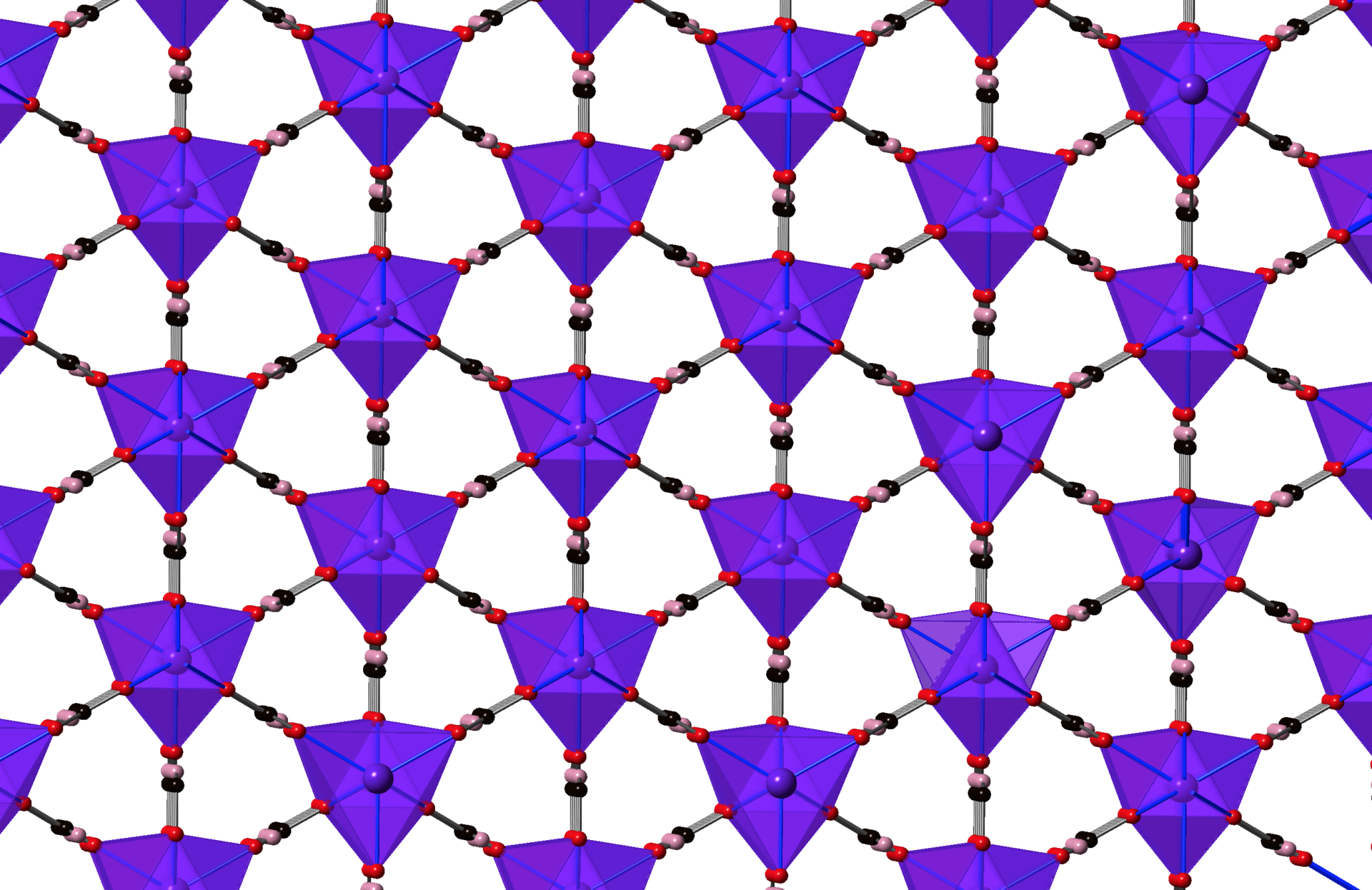The tremendous flexibility of coordination frameworks allows them to manifest a unique range of structures and properties. Our team uses this to develop the materials needed to drive the development of more efficient cooling and energy harvesting materials.
Coordination frameworks are materials in which cationic metal nodes are connected into extended solids via polyatomic ligands. They have tremendous chemical flexibility due to their ability to incorporate a wide range of cations and ligands, including a broad variety of organic ligands. This gives rise to a vast range of structures that can support the magnetic, electronic, conducting and optical properties found in other extended solids but modified in unique ways not possible in other materials.
Our group, lead by Paul, is primarily interested in coordination frameworks with magnetic and piezoelectric properties, which have potential to enable more efficient cooling technologies and harvest waste mechanical motion. At present, this includes a major focus on low dimensional and frustrated magnetic materials that have potential for use as magnetocalorics for low temperature cooling. Our research in this area is currently funded by the Engineering and Physical Sciences Research Council and the Leverhulme Trust and involve strong collaborations with researchers in Cambridge and Oxford.
Research in our group blurs the boundary of chemistry and physics. It commonly involves a mixture of:
- Materials synthesis, primarily using ambient temperature and hydrothermal methods
- Powder and single crystal diffraction to determine the structure and bulk composition of our materials
- Physical properties characterisation, particularly magnetic property measurements
A particular strength of the group is the use of neutron scattering techniques to understand the atomic scale structure and dynamics of coordination frameworks from which their functional properties emerge. Understanding our materials on this scale is key to their development by giving us the insight needed to develop design rules to optimise them. We are always keen to welcome masters and PhD students into our group and projects in functional coordination frameworks can be tailored to best fit their interests.
